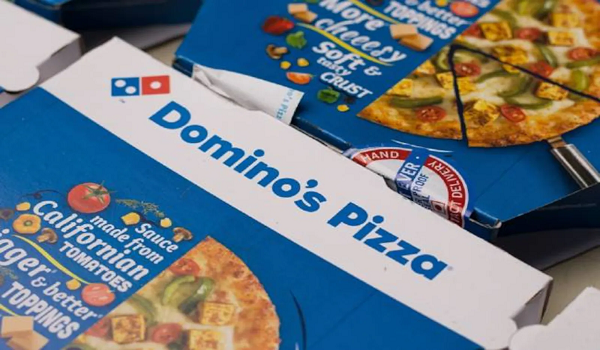Domino’s Pizza: Transforming from Food Brand to Tech Innovator
By 2017, amidst the intense competition of the technology sector, one company had managed to outperform the likes of Apple, Google, and Facebook in stock returns: Domino’s Pizza. With its market valuation now soaring to $15 billion, Domino’s has transformed itself into a formidable force not just in the fast-food industry, but as a tech company at its core. This remarkable trajectory underscores the power of innovation and how technology can drive growth in industries that are often perceived as traditional.
When we think of tech companies, we often envision Silicon Valley giants developing software and hardware that reshape our daily lives. However, Domino’s has demonstrated that technology can revolutionize even the most traditional businesses. Founded in 1960, the company initially focused on delivering pizza quickly and efficiently. Over the decades, it has evolved far beyond its roots, embracing technology to enhance its operations and customer experience.
By the time of its dramatic stock performance in 2017, Domino’s had implemented a series of innovative strategies that set it apart from its competitors. The company invested heavily in digital ordering systems, allowing customers to place orders seamlessly through its website and mobile app. These platforms not only made ordering easier but also enabled Domino’s to collect valuable data on customer preferences, which could be used to tailor marketing strategies and improve service.
Domino’s commitment to technology extends to its operational processes as well. The company has embraced automation and artificial intelligence to streamline its supply chain and improve efficiency. For instance, Domino’s has deployed advanced logistics systems that optimize delivery routes, reducing wait times and ensuring that pizzas arrive hot and fresh. This focus on operational excellence has been crucial in an industry where speed and quality are paramount.
In addition to enhancing logistics, Domino’s has also incorporated technology into its kitchen operations. The use of automated ovens and smart inventory management systems has improved consistency and reduced food waste, ultimately leading to higher profit margins. These innovations have not only improved the bottom line but have also positioned Domino’s as a leader in the fast-food sector, showcasing how tech-driven solutions can enhance food quality and service.
At the heart of Domino’s success is its dedication to improving the customer experience. The company has leveraged technology to create a user-friendly ordering process that appeals to a tech-savvy consumer base. The introduction of features such as real-time order tracking and personalized recommendations has transformed how customers interact with the brand.
Moreover, Domino’s has capitalized on the growing trend of online delivery services. As consumers increasingly turn to their smartphones for food ordering, Domino’s has positioned itself as a frontrunner in the delivery space. The company has formed partnerships with third-party delivery services and has even experimented with its own delivery drones and autonomous vehicles. These innovations reflect a deep understanding of consumer behavior and the importance of convenience in today’s fast-paced world.
One of the most significant advantages of Domino’s tech-driven approach is its ability to harness data for informed decision-making. The company collects extensive data on customer orders, preferences, and feedback, allowing it to analyze trends and make strategic adjustments. This data-driven mindset has been integral to Domino’s marketing efforts, enabling the brand to launch targeted campaigns that resonate with specific demographics.
For example, Domino’s has utilized social media analytics to gauge customer sentiment and engagement. By monitoring social media conversations, the company can adapt its messaging and promotions to align with consumer interests. This agility has proven invaluable in a competitive landscape where consumer tastes can change rapidly.
Domino’s success can also be attributed to its commitment to fostering a culture of innovation. The company encourages employees at all levels to contribute ideas and experiment with new concepts. This openness to change has led to the development of several initiatives, including the “AnyWare” ordering system, which allows customers to order pizza through various platforms, including smartwatches and voice assistants like Amazon’s Alexa.
By prioritizing innovation, Domino’s has managed to stay ahead of the curve and adapt to the evolving landscape of the food industry. The company’s ability to pivot quickly in response to market demands has been a key factor in its sustained growth.
Domino’s rise to prominence as both a food brand and a tech powerhouse serves as a powerful example of how innovation can reshape traditional industries. By leveraging technology to streamline operations, enhance customer experiences, and make data-driven decisions, the company has created a model for success that challenges the conventional understanding of what it means to be a tech company.
In an age where technology is increasingly intertwined with every aspect of our lives, Domino’s stands as a testament to the potential for growth and transformation in unexpected sectors. As it continues to evolve and innovate, the company is poised to maintain its position as a leader in both the food industry and the tech landscape. With a clear vision and a relentless commitment to innovation, Domino’s is not just delivering pizzas; it is redefining how we think about food and technology in our modern world.

